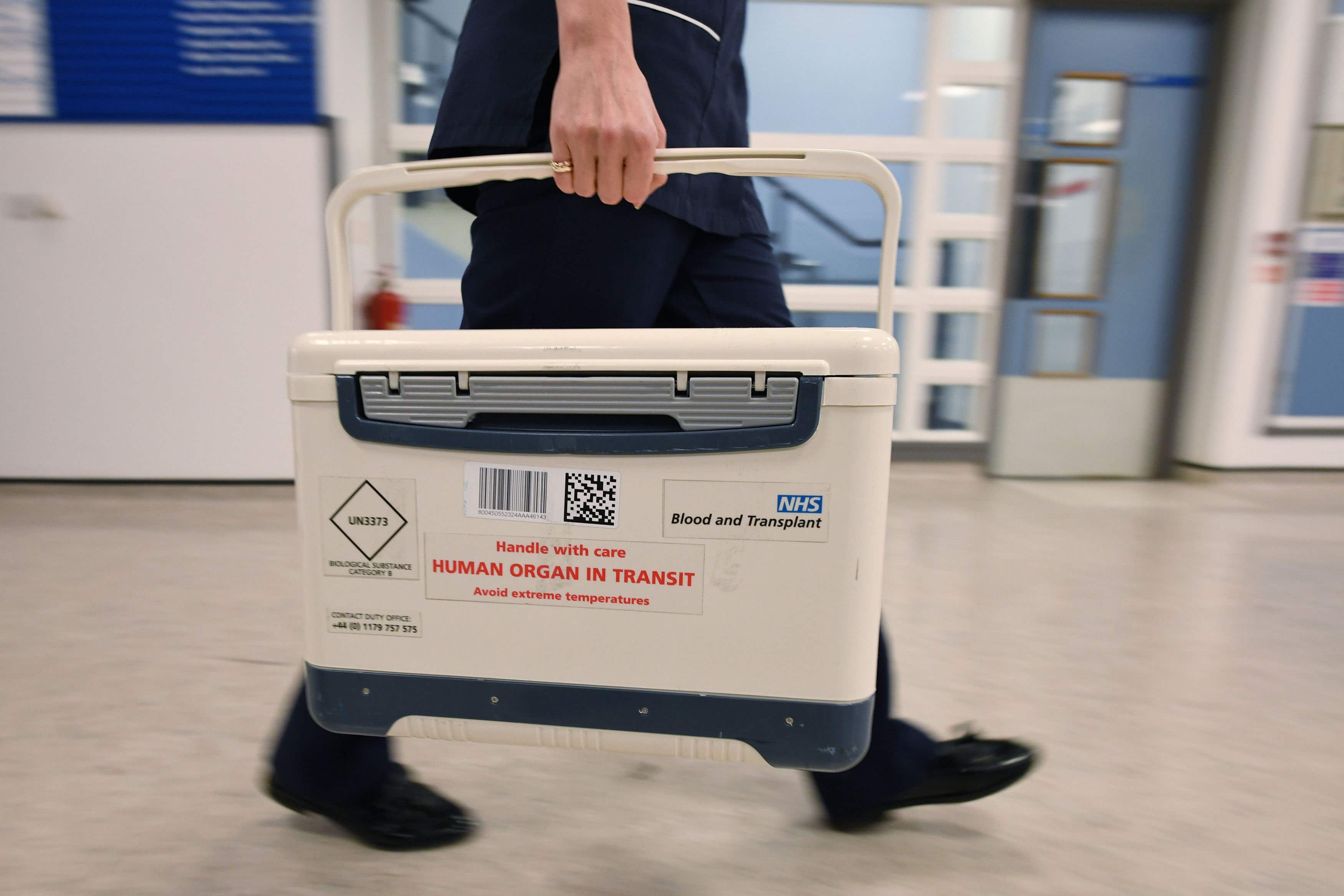Testing for ‘zombie cells’ could boost number of hearts for transplant – study
Currently hearts from donors aged over 65 are not accepted for donation due to the likelihood of a poor outcome.

Your support helps us to tell the story
From reproductive rights to climate change to Big Tech, The Independent is on the ground when the story is developing. Whether it's investigating the financials of Elon Musk's pro-Trump PAC or producing our latest documentary, 'The A Word', which shines a light on the American women fighting for reproductive rights, we know how important it is to parse out the facts from the messaging.
At such a critical moment in US history, we need reporters on the ground. Your donation allows us to keep sending journalists to speak to both sides of the story.
The Independent is trusted by Americans across the entire political spectrum. And unlike many other quality news outlets, we choose not to lock Americans out of our reporting and analysis with paywalls. We believe quality journalism should be available to everyone, paid for by those who can afford it.
Your support makes all the difference.A blood test that looks for so-called “zombie cells” could boost the number of hearts available for transplant, new research suggests.
Currently, hearts from donors aged over 65 are not accepted for donation due to the likelihood of a poor outcome.
However, hearts age at different rates and age is not necessarily the best indicator of heart health, experts say.
Researchers from Newcastle University are working to develop a test which may help doctors determine quickly whether a donor heart may still be suitable for transplant.
We are confident that we will be able to use these clues to better understand which hearts from non-eligible donors might be able to be used after all
There are about 320 people waiting for a lifesaving heart transplant in the UK, and it is hoped this new test would help to increase the number of the organs available, and allow more people to get the transplant they need.
The research, part-funded by the British Heart Foundation (BHF) and presented at the British Cardiovascular Society conference in Manchester, indicates that people with heart disease have more senescent – or “zombie” – cells than those without, after researchers found higher levels of “zombie” cell markers in their blood.
While these “zombie” cells are not dead, they do not work as they should.
The cells release molecules which can affect neighbouring cells, also turning these into “zombie” cells.
Researchers say they also increase the amount of inflammation and cause scar tissue to form in the heart muscle, raising the risk of developing heart and circulatory diseases.
The team now wants to find out more about the signature that “zombie” cells leave in the blood and what this tells them about the biological as opposed to the chronological age of the heart.
The scientists think a blood test to look for this signature in older potential donors could reveal those who have biologically young, healthy hearts that might be suitable for transplant.
Dr Gavin Richardson, senior lecturer and lead of the vascular medicine and biology theme at Newcastle University, is leading the research.
We urgently need more hearts available for transplant, so it is very encouraging to hear about the work Dr Richardson and his colleagues are doing to help meet this demand
He said: “Our work is revealing more about the clues that ‘zombie’ cells leave to suggest their presence in the body.
“We are confident that we will be able to use these clues to better understand which hearts from non-eligible donors might be able to be used after all.
“This could be a game changer as currently most hearts from older donors are not used for transplant, but the hope is we will be able to show that a number of these organs are suitable for transplant for people desperately waiting for a new heart.”
When researchers looked at human heart cells in a dish, they saw that the “zombie” cells secrete higher levels of protein called GDF15 compared with healthy cells.
Using blood samples from 774 people aged over 85, they found higher levels of the protein in the blood of people with heart disease than people without.
This suggests their hearts contain more “zombie” cells, according to the study.
Because the increase in GDF15 levels in the blood of people with heart disease was similar to that of another protein already used to diagnose heart failure, the researchers are confident they would be able to identify the cells associated with senescence.
The researchers also looked at the RNA in cells from eight donor hearts.
RNA – short for ribonucleic acid – is similar to DNA and tells cells which proteins to make depending on the genes that are turned on.
When the scientists looked at another marker in these hearts linked to “zombie” cells – called p21 – they found a strong link between this and another marker of heart and circulatory diseases.
These two molecules will form part of the “zombie” cell signature that could be detected through a tissue or blood test.
Blood and tissue samples from the Quality in Organ Donation biobank and NHS Blood and Transplant are now being analysed for this signature and to find out whether it is linked to better transplant outcomes.
Professor James Leiper, associate medical director at the British Heart Foundation, said: “We are facing a heart failure epidemic with nearly one million people in the UK living with this condition and for a small but significant number of these people the only cure we can offer is a heart transplant.
“We urgently need more hearts available for transplant, so it is very encouraging to hear about the work Dr Richardson and his colleagues are doing to help meet this demand.”